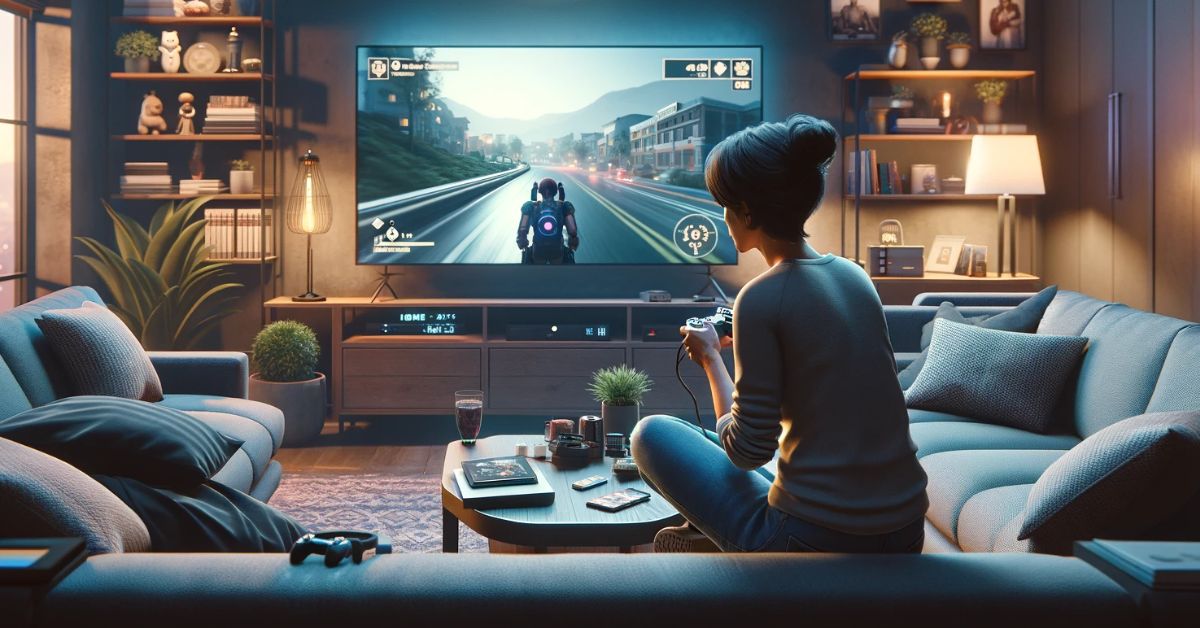In a world obsessed with productivity and efficiency, video games often get relegated to a childish pursuit. But what if I told you that picking up a controller (or keyboard and mouse) could actually be good for you, even as an adult?
Boosting Your Brainpower:
Studies have shown that playing video games can improve cognitive skills like memory, attention and problem-solving. For example, the fast-paced action of Fortnite enhances your ability to multitask and react quickly to changing situations, while the strategic planning required in Civilization VI improves your planning and critical thinking skills.
Stress Relief and Relaxation:
Let’s face it, adulting can be stressful. Video games can provide a much-needed escape from the daily grind. Immersing yourself in a virtual world like Animal Crossing: New Horizons or Stardew Valley can help you relax and de-stress, leaving you feeling refreshed and rejuvenated.
Social Connection and Community:
Online gaming allows you to connect with people from all over the world who share your interests. Games like Overwatch and Rainbow Six Siege foster teamwork and communication, allowing you to build friendships and join communities around shared goals. This sense of belonging and social connection can be especially important for people who may feel isolated or alone.
Enhancing Creativity and Problem-Solving:
Many video games require players to think creatively and come up with innovative solutions to problems. Whether you’re building intricate structures in Minecraft or crafting the perfect strategy to defeat bosses in Elden Ring, video games can help you develop valuable problem-solving skills and approach challenges from new perspectives.
Improved Hand-Eye Coordination and Motor Skills:
Fast-paced action games like Apex Legends and Doom Eternal can improve your hand-eye coordination and motor skills, which can benefit you not only in the virtual world but also in real-world activities like driving, playing sports or even just everyday tasks.
Lifelong Learning:
Video games can be a fun and engaging way to learn about new cultures, history and even science. Educational games like Assassin’s Creed Odyssey can teach you about ancient Greece, while Kerbal Space Program can help you understand the mechanics of space travel. And let’s not forget about language learning games like Duolingo, which can help you improve your communication skills in a fun and interactive way.
Mental Health Benefits:
Beyond cognitive benefits, video games can be powerful tools for mental well-being. Games like Journey and Flower offer serene and immersive experiences, promoting relaxation and reducing anxiety. In Abzu and Firewatch, players embark on introspective journeys through beautiful environments, encouraging self-reflection and mindfulness. These games provide a safe space for exploration and expression, allowing players to manage stress, process emotions and even cope with anxiety and depression.
For individuals struggling with social anxiety or isolation, online games like No Man’s Sky and Elite Dangerous offer vast and expansive online worlds where players can connect with others and build communities. By collaborating on missions, exploring new planets or simply enjoying each other’s company, players can develop communication skills, build friendships and find a sense of belonging, ultimately promoting mental well-being.
Additionally, games like Tetris Effect and Lumines utilize music and puzzle mechanics to create a flow state, a state of optimal concentration and focus. This can be beneficial for individuals who struggle with attention deficit or hyperactivity disorder (ADHD).
Therefore, it’s evident that video games can play a significant role in supporting mental health. Whether it’s through relaxation, stress reduction, self-reflection or social connection, these digital experiences offer a variety of benefits for emotional well-being in adults.
Here are some additional tips for making the most of your video game time as an adult:
- Set limits: It’s important to set limits on how much time you spend playing video games. Make sure you’re still making time for other important activities, such as work, family and friends.
- Choose games that are right for you: There are countless video games out there, so there’s sure to be something for everyone. Choose games you find enjoyable and challenging in a positive way.
- Play with friends and family: Playing video games with others can be a great way to connect and have fun. It can also make the experience more challenging and rewarding.
- Take breaks: It’s important to take breaks every 20-30 minutes to avoid eye strain and fatigue. Get up and move around, stretch and do some eye exercises.
While the benefits of playing video games as an adult are undeniable, it’s important to ponder the deeper implications of this digital pastime. Are we truly enriching our lives or merely escaping reality? Can the skills we hone in virtual worlds translate into meaningful, real-world contributions?
Perhaps the true value lies in the balance. By embracing video games as a tool for cognitive enhancement, stress relief and social connection, we can unlock their potential to improve our lives. But it’s crucial to remember that the most fulfilling experiences often lie beyond the screen, waiting to be explored and engaged with. So, let’s use video games as a launchpad for self-discovery and growth rather than a substitute for genuine human connection and real-world engagement.



